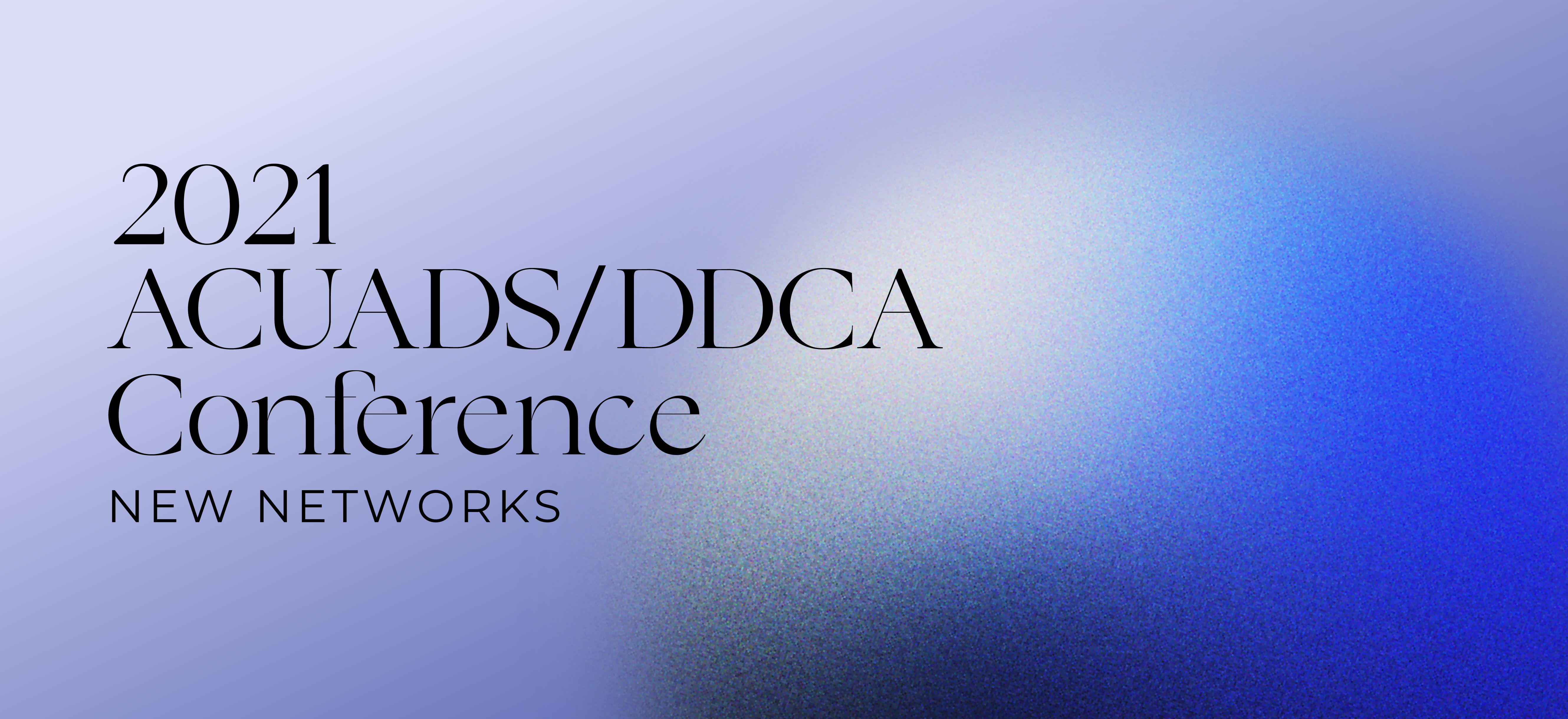
ACUADS/DDCA 2021 Conference
New Networks
In response to COVID-19 government restrictions, the conference will be a hybrid event held in October.
Thursday 28th October 2021
Friday 29th October 2021
Papers & keynote presentations: online (Microsoft Teams)
Roundtable and networking discussions: RMIT City & VCA Southbank campuses, Melbourne
Conference contact: admin@staging.acuads.com.au
Call for papers
The 2021 ACUADS Conference, developed in partnership with the Australian Council of Deans and Directors of Creative Arts (DDCA), explores the theme of networks to consider their possibilities in response to the challenges and future agendas of the Tertiary Art, Design and Creative Arts sector.
The origins of network theory can be traced back to the Seven Bridges of Königsberg, a famous problem in Western mathematics. Resolved by Leonard Euler in 1736, the topography of the city of Königsberg, Russia, included the Pregel River, two large islands and seven bridges. The challenge was to devise a walk through the city that would cross each bridge only once. Euler demonstrated this to be impossible; and in the process of developing his proof, new techniques for the analysis of the city’s ‘network’ were established.
Today, mapping pathways through urban space has taken on new meaning. With the arrival of COVID, we think of networks in terms of vectors, tracing, upstream and downstream flows; patterns of concern as well as frameworks that protect. COVID also demonstrates the raw power of networks. As Bruno Latour suggests: ‘we must not think of the personal and the collective as two distinct levels. The big climate questions can make individuals feel small and impotent. But the virus gives us a lesson. If you spread from one mouth to another, you can viralise the world very fast. That knowledge can re-empower us.’
At the same time as viral threats, there is arguably a global ‘attack’ on the Arts as a soft target during crisis, scarcity and shifting priorities. New ways to survive and indeed thrive are needed. Strengthening connection and collaboration – forming networks – in response to these challenges has perhaps never been more important. Even, as Rosi Braidotti proposes, the need to think far beyond Euler’s approach to problem solving and our usual conceptual parameters: posthuman paradigms are required to address the social, technological, viral and ecological issues of our times.
Presentations are invited that respond to the following prompts and related topics:
- Ecosystems & posthuman networks: learning from the more than human, particularly in response to climate change, has never been more urgent. How is the posthuman addressed by art & design schools?
- Decentring networks: action on our national reconciliation agendas is a critical priority for the Higher Education sector. How can art and design recognise and learn from alternative bodies of knowledge and contribute to reconciliation?
- Online work and resilience: for many, teaching online has changed the scope of our work as educators. The need to reconnect individual and community wellbeing has also been acute. What have we learnt from online and ‘blended’ modes of delivery? In the workplace as well as at home, how do we move from hyper-individualism in our approach to resilience, care and recovery?
- Local & global COVID networks: locally, the HE sector has been radically re-shaped, not just by COVID, but also the Jobs Ready Graduates bill. Is there a need to also re-shape how we deliver programs and consider IP, moving beyond insular / regional divides through new approaches to cross-institutional models? Internationally, the pandemic has been experienced in very different ways, depending not just on nationality but also race, gender, age and other factors. After the prolonged absence of global mobility, what modes of international collaboration and connection are possible or needed?
Contributions from academics, postgraduate students, designers and artists that consider Networks in the context of contemporary art and design practice, including pedagogy, are welcomed.
In recognition of diverse forms of knowledge, presentation formats may include artist talks, performance, creative works etc as well as academic papers.
Note: The standard delivery time of 2021 ACUADS Conference presentations has been reduced to account for the wellbeing of session participants. Presentations will be timed to 15 minutes (2000 words for an academic paper).
Presentation abstracts or expressions of interest are due by 5pm Friday 20th August.
Please send to: admin@staging.acuads.com.au
Applications will be peer reviewed by the Selection Committee and responses provided by Friday 3rd September. All academic papers will undergo a double blind peer-review process after the conference event, for publication through the ACUADS website, unless authors nominate to not have their papers put through this process.
